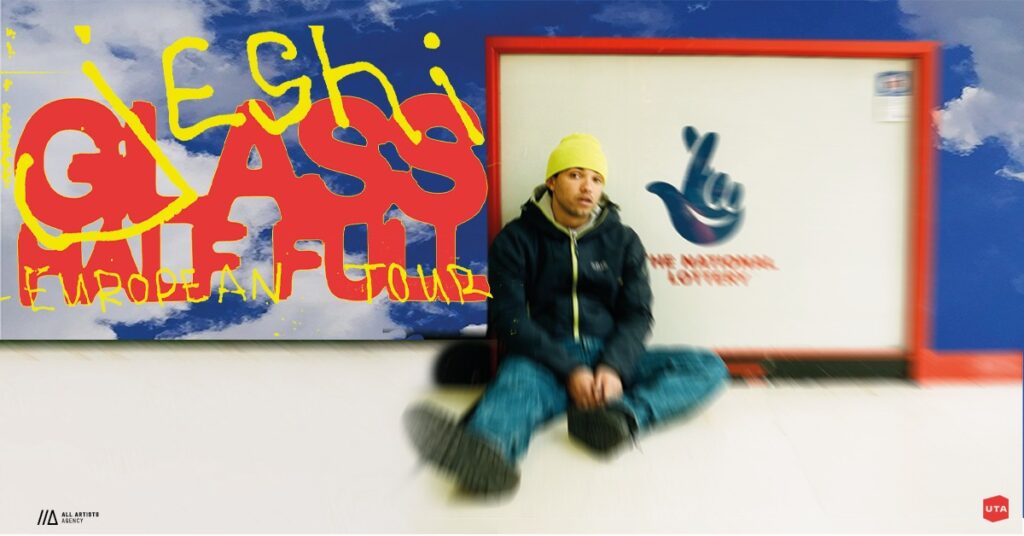
Sa. 11.03.2023 | 19:00 UHR
Jeshi
TICKETSFB-EVENT
11.03.2022
Badehaus Berlin
Einlass: 19:00 /// Beginn: 20:00
Jeshi’s journey to making Universal Credit, his open-hearted and heavy hitting debut album, began with a desire to take his music further, to say something he’d not yet said on EPs like 2020’s BAD TASTE or The Worlds Spinning Too Fast. He’d been making music his entire life but felt like he was coming up against the edges of what he had set out to do. There was only one answer; push and keep on pushing. The result is an album that acts as a radial act of empathy; looking out across society and attempting to bridge the divide between rich and poor. Universal Credit is an album that gifts humanity back to the demonised and lays bare the truth behind the prejudice; that nobody is immune from poverty or hardship and that luck plays a major role in everybody’s fate.
“Growing up my family has been on benefits and that’s been normalised in my life,” says Jeshi. “I’m very aware that doesn’t make you a bad person.” It’s a simple idea, an offer of basic empathy. But in a selfish capitalist society driven by greed and resentment it helps to say it out loud. Struggling isn’t a crime.
Written and recorded during the global pandemic, Jeshi was struck by the way in which millions of people in the U.K. received government furlough when luck transpired against them and working was no longer viable. How, he wondered, was this significantly different to those who receive benefits from the same government and yet are held up as “scroungers” by others? “People are often in a situation where they’re a couple of decisions away from tricky situations that are no fault of their own,” he says. “Life is difficult for everyone. It’s the pick of the draw.” Themes of financial struggle and hardship run through Universal Credit, from the rising rents causing tension on Killing Me Slowly through to Generation, a zoomed out snapshot of societal trauma and the day to day struggles that make changing the bigger picture seem impossible. The inescapable presence of needless death and brutality is felt deep in the bones of Violence, one of two songs with Nigerian vocalist Obongjayar on the album, while Two Mums is a loving tribute to non-traditional family set-ups where love trumps convention.
Though there is a heavy feeling of anxiety that runs through the album, there are moments of wild abandon, too. Fredwave appears to document a wild night out on Another Cigarette while 3210 captures the moment another rager turns sour and Jeshi wishes he’d stayed at home. Universal Credit is an album that feels alive at all times; through the good times and the bad.
While showcasing an ability to handle heavy subject matter with a deftness of touch, Jeshi also brings humour into the album at key moments, including the artwork that pictures him receiving his government money via a Lottery winner style cheque.
By focusing on the immediate world around him, including his own memories of being broke and unlucky, or simply trying to make sense of an unforgiving world, Jeshi has been able to make a wider statement. I didn’t want it to be me saying ‘Look at the state of the country,’ he argues. “There’s no political messaging on there. I just wanted to take the phrase Universal Credit and make it empowering. Putting some pride into words that often have been weaponised against people.”
Universal Credit comes from a place of honesty and heart from an artist unafraid to say the things that make him most uncomfortable. “I’ve just reached a point in my life where I’m not interested in pretending to be anything that I’m not,” he says. “The only thing I can be the best at is being a 100% true version of myself. I wrote the majority of this album broke and having nothing to look forward to. It gave me something to look forward to, a place to direct my frustrations at my life not being where I wanted it to be. I’m not interested in quick affirmations. I wanted to make something that will last and that people will really connect with. I can’t do that while holding anything back.”
